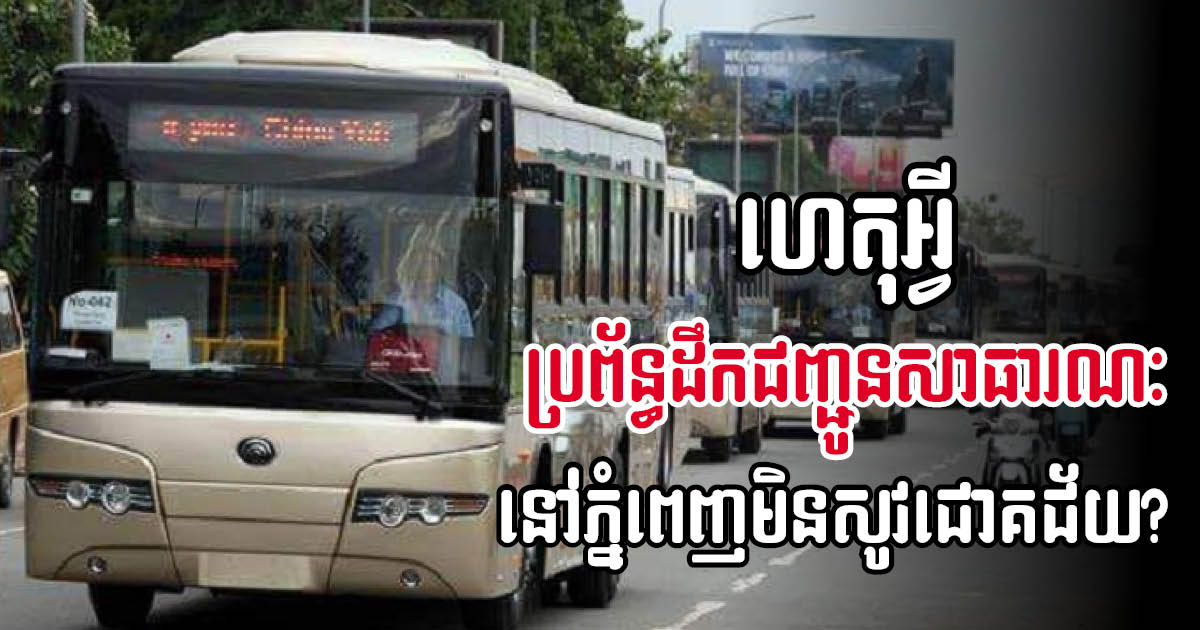ផ្លូវមួយខ្សែភ្ជាប់ពីផ្លូវជាតិលេខ៦ ដល់តំបន់ទេសចរណ៍កំពង់ភ្លុក សាងសង់បាន ៧០% ហើយ
គម្រោងអភិវឌ្ឍន៍ហេដ្ឋារចនាសម្ព័ន្ធដ៏សំខាន់មួយកំពុងដំណើរការនៅក្នុងខេត្តសៀមរាប ដែលមានផ្លូវប្រវែង ១៥គីឡូម៉ែត្រ តភ្ជាប់ពីផ្លូវជាតិលេខ៦ ទៅកាន់តំបន់ទេសចរណ៍កំពង់ភ្លុក ពេលនេះសម្រេចបានប្រមាណ ៧០% ហើយ។ នេះបើយោងតាមការប្រកាសរបស់រដ្ឋបាលខេត្តសៀមរាប នៅថ្ងៃទី៣ ខែឧសភា ឆ្នាំ២០២៥។ រដ្ឋបាលខេត្តសៀមរាប បានឱ្យដឹងថា ផ្លូវមួយខ្សែនេះ មានទទឹង ៨ម៉ែត្រ និងប្រវែង ១៥គីឡូម៉ែត្រ គឺជាអំណោយរបស់សម្តេចនាយករដ្ឋមន្ត្រី ហ៊ុន ម៉ាណែត ជូនពលរដ្ឋដែលរស់នៅក្នុងឃុំកំពង់ភ្លុក ស្រុកប្រាសាទបាគង និងសហគមន៍ទេសចរណ៍ ដើម្បីបម្រើផលប្រយោជន៍ក្នុងការដឹកជញ្ជូនផលនេសាទ និងធ្វើជាផ្លូវដ៏សំខាន់សម្រាប់ភ្ញៀវទេសចរដែលមកទស្សនាបឹងទន្លេសាបដ៏ស្រស់ត្រកាល។ គួរបញ្ជាក់ថា ផ្លូវមួយខ្សែនេះ ត្រូវបានសាងសង់ដោយក្រុមការងារកងវិស្វកម្មតេជោ ហ៊ុន សែន ដែលគ្រោងនឹងបញ្ចប់ក្នុងខែកក្កដា ឆ្នាំ២០២៥ ខាងមុខនេះ។ ផ្លូវនេះ ត្រូវបានបែងចែកជាពីរប្រភេទសម្រាប់ការងារសាងសង់, ទី១ គិចចាប់ពីផ្លូវជាតិលេខ៦ ដល់ភូមិតាប្រាក់ ឃុំមានជ័យ ត្រូវបានសាងសង់ជាប្រភេទផ្លូវបេតុង, ទី២ ជាប្រភេទផ្លូវក្រាលកៅស៊ូខ្លះ និងបេតុងខ្លះ ដោយក្នុងនោះមានសង់ផ្លូវបេតុងប្រវែង ៣,២៥គីឡូម៉ែត្រ និងផ្លូវក្រាលកៅស៊ូប្រវែង ៩គីឡូម៉ែត្រ គិតចាប់ពីភូមិតាប្រាក់ ទៅដល់ចំណតទូកឃុំកំពង់ភ្លុក។ អាជ្ញាធរខេត្តបានបញ្ជាក់បន្ថែមថា នៅឆ្នាំក្រោយ នឹងមានគម្រោងសាងសង់ផ្លូវបន្តពីចំណតទូកឃុំកំពង់ភ្លុកទៅសាលាឃុំកំពង់ភ្លុកថែមទៀតផង។ តាមរយៈផ្លូវនេះ […]
ធនាគារ JBIC របស់ជប៉ុន ចាប់អារម្មណ៍ចង់សហការលើគម្រោងអភិវឌ្ឍហេដ្ឋារចនាសម្ព័ន្ធធំៗនៅកម្ពុជា
ធនាគារជប៉ុនសម្រាប់កិច្ចសហប្រតិបត្តិការអន្តរជាតិ (Japan Bank for International Cooperation-JBIC) បាន បង្ហាញចំណាប់អារម្មណ៍សហប្រតិបត្តិការលើគម្រោងហេដ្ឋារចនាសម្ព័ន្ធធំៗនៅកម្ពុជា។ នេះបើតាមជំនួបរវាងសម្ដេចមហាបវរធិបតី ហ៊ុន ម៉ាណែត នាយករដ្ឋមន្ត្រី និងលោក MAEDA Tadashi ប្រធាន និងជានាយកប្រតិបត្តិនៃធនាគារ JBIC នៅថ្ងៃទី២៨ ខែឧសភា ឆ្នាំ២០២៥។ នាឱកាសនោះដែរ លោកប្រធានធនាគារ JBIC បានលើកបង្ហាញអំពីកិច្ចសហប្រតិបត្តិការរបស់ធនាគារ JBIC ជាមួយនឹងបណ្ដាប្រទេសជាច្រើននៅក្នុងតំបន់ និងក្នុងសាកលលោកផងដែរ។ លើសពីនេះ លោកប្រធាន ក៏បានគូសបញ្ជាក់អំពីចំណាប់អារម្មណ៍ក្នុងការស្វែងរកឱកាសនៃកិច្ចសហប្រតិបត្តិការនៅកម្ពុជា ដើម្បីចូលរួមចំណែកដល់កិច្ចខិតខំប្រឹប្រែងរបស់រាជរដ្ឋាភិបាលកម្ពុជាក្នុងការអភិវឌ្ឍសង្គម-សេដ្ឋកិច្ច ដោយផ្ដោតទៅលើវិស័យ និងគម្រោងធំៗជាច្រើន ដូចជា៖ វិស័យថាមពល, គម្រោងនៃការកសាងហេដ្ឋារចនាសម្ព័ន្ធ, ការគ្រប់គ្រងសំណល់, និងថាមពលស្អាត ជាដើម។ ជាការឆ្លើយតប សម្ដេចបវរធិបតី បានស្វាគមន៍ចំពោះក្រុមហ៊ុនដែលមានចំណាប់អារម្មណ៍ស្វែងរកកិច្ចសហប្រតិបត្តិការលើវិស័យ និងគម្រោងសំខាន់ៗ នៅក្នុងប្រទេសកម្ពុជា។ ទន្ទឹមនឹងនេះ សម្ដេចមានជំនឿយ៉ាងមុតមាំថា ចំណាប់អារម្មណ៍របស់ធនាគារ JBIC នឹងរួមចំណែកដល់ការពន្លឿនការអភិវឌ្ឍនៃគម្រោងតភ្ជាប់សំខាន់ៗនៅកម្ពុជា និងបានលើកទឹកចិត្តឱ្យធនាគារ JBIC បន្តផ្សារភ្ជាប់ទំនាក់ទំនង និងពិភាក្សាជាមួយក្រសួងស្ថាប័នពាក់ព័ន្ធកម្ពុជា ដើម្បីស្វែងរកឱកាសនៃកិច្ចសហប្រតិបត្តិការលើគម្រោងវិនិយោគនានានៅកម្ពុជា។ […]
រដ្ឋប្រកាសប្តូរពេលវាលាបើកដំណើរការព្រលានតេជោថ្មី៖ ប្តូរពីខែកក្កដា ទៅខែកញ្ញា វិញ
រដ្ឋលេខាធិការដ្ឋានអាកាសចរណ៍ស៊ីវិល បានប្រកាសពីការផ្លាស់ប្តូរពេលវេលាក្នុងការបើកប្រតិបត្តិការអាកាសយានដ្ឋានអន្តរជាតិតេជោក្រុងតាខ្មៅ លំដាប់ថ្នាក់ 4F ពីថ្ងៃទី១០ ខែកក្កដា ទៅថ្ងៃទី០៩ ខែកញ្ញា ឆ្នាំ២០២៥ វិញ។ នេះបើតាមសេចក្តីជូនដំណឹងរបស់រដ្ឋលេខាធិការដ្ឋានអាកាសចរណ៍ស៊ីវិលដែលបានចេញផ្សាយនៅថ្ងៃទី២៣ ខែឧសភា ឆ្នាំ២០២៥។ ទន្ទឹមនឹងនេះ រដ្ឋលេខាធិការដ្ឋានអាកាសចរណ៍ស៊ីវិល ក៏បានបញ្ជាក់បន្ថែមពីការកំណត់យកថ្ងៃទី២០ ខែតុលា ឆ្នាំ២០២៥ សម្រាប់រៀបចំពិធីសម្ពោធបើកឱ្យប្រើប្រាស់ អាកាសយានដ្ឋានអន្តរជាតិតេជោ លំដាប់ថ្នាក់ 4F ជាផ្លូវការ ក្រោមអធិបតីភាពដ៏ខ្ពង់ខ្ពស់របស់ សម្តេចមហាបវរធិបតី ហ៊ុន ម៉ាណែត នាយករដ្ឋមន្ត្រីនៃព្រះរាជាណាចក្រកម្ពុជាផងដែរ។ គួររលឹកថា គិតត្រឹមពាក់កណ្តាលខែឧសភានេះ អាកាសយានដ្ឋានអន្តរជាតិតេជោក្រុងតាខ្មៅ សម្រេចការសាងសង់បានប្រមាណជាង ៩៦% ហើយបានចំណាយទុនអស់ប្រមាណជា ១,៦ពាន់លានដុល្លារ។ (អានបន្ថែម) គម្រោងសាងសង់អាកាសយានដ្ឋានអន្តរជាតិតេជោនេះ ត្រូវបានចាប់ផ្តើមកាលពីថ្ងៃទី ១៦ ខែមិថុនា ឆ្នាំ ២០២០ ដែលលាតសន្ធឹងលើផ្ទៃដីទំហំ ២,៦០០ ហិកតា នៅទូទាំងស្រុកកណ្តាលស្ទឹង ខេត្តកណ្តាល និងស្រុកបាទី ខេត្តតាកែវ។ ពាក់ព័ន្ធនឹងគម្រោងនេះ រដ្ឋាភិបាលអាម៉េរិក ទើបបានបង្ហាញពីផែនការដែលខ្លួនកំពុងសិក្សាវាយតម្លៃពីលទ្ធភាពផ្ដល់ហិរញ្ញប្បទានសម្រាប់គម្រោងសាងសង់អាកាសយានដ្ឋានអន្តរជាតិតេជោក្រុងតាខ្មៅនេះផងដែរ។(អានបន្ថែម) គួរបញ្ជាក់ថា ក្រោយអាកាសយានដ្ឋានថ្មីនេះ បើកដំណើរការ […]
ផ្លូវជាតិលេខ១០ ប្រវែងជាង១៩៧គ.ម សម្រេចការសាងសង់ ១០០%ហើយ
ការសាងសង់ផ្លូវជាតិលេខ១០ ប្រវែងជាង ១៩៧,៣៦ គីឡូម៉ែត្រ ត្រូវបានបញ្ចប់ការងារសាងសង់ជាស្ថាពរ ១០០% ហើយ ដែលនេះជាព្រឹត្តិការណ៍ដ៏សំខាន់ក្នុងការអភិវឌ្ឍន៍ហេដ្ឋារចនាសម្ព័ន្ធក្នុងតំបន់។ បច្ចុប្បន្នផ្លូវនេះ បានដំណើរការយ៉ាងពេញលេញ និងបានឆ្លងកាត់ការត្រួតពិនិត្យយ៉ាងម៉ត់ចត់ពីក្រុមអ្នកបច្ចេកទេសជំនាញ ដើម្បីធានាបាននូវអាយុកាលប្រើប្រាស់បានយូរ និងគោរពតាមស្តង់ដារបច្ចេកទេស។ នេះបើយោងតាមដំណើរចុះត្រួតពិនិត្យលម្អិត មុននឹងពិធីប្រគល់-ទទួល ដឹកនាំដោយឯកឧត្តម ខាន់ ម៉ាណេរ រដ្ឋលេខាធិការ ក្រសួងសាធារណការ និងដឹកជញ្ជូន និងជានាយកគម្រោង ជាមួយក្រុមសាងសង់ CRBC និងក្រុមហ៊ុនទីប្រឹក្សាបច្ចេកទេស ក្វាងចូវវ៉ានអាន នៅថ្ងៃទី២១ ខែឧសភា ឆ្នាំ២០២៥។ ឯកឧត្តម ខាន់ ម៉ាណេរ បានថ្លែងអំណរគុណដល់គ្រប់ផ្នែកពាក់ព័ន្ធ ដែលបានខិតខំបំពេញកិច្ចការងារដោយយកចិត្តទុកដាក់ និងក្រើនរម្លឹកដល់ក្រុមហ៊ុនសាងសង់ ខណៈឯកឧត្តមក៏សូមឱ្យបំពេញកិច្ចការងារដែលនៅសេសសល់តិចតួច មានការដាក់ផ្លាកសញ្ញាចរាចរណ៍ គំនូសសញ្ញាតាមដងផ្លូវជាដើម។ ទន្ទឹមគ្នានេះ ឯកឧត្តម ក៏ស្នើឱ្យបញ្ចប់ឱ្យបានត្រឹមត្រូវតាមបច្ចេកទេស កំណត់ទីតាំងឱ្យបានច្បាស់លាស់។ លើសពីនេះក្រុមហ៊ុនបានទទួលយល់ព្រមដោយសន្យាថានឹងអនុវត្តឱ្យបានរួចរាល់ក្នុងរយៈពេលបីខែទៀត ដើម្បីជាការសម្រួលដល់ការធ្វើដំណើរ និងការដឹកជញ្ជូនរបស់បងប្អូនប្រជាពលរដ្ឋ។គួរបញ្ជាក់ថា ផ្លូវជាតិលេខ១០ មានចំណុចចាប់ផ្តើមពីផ្លូវជាតិលេខ 57-7 ត្រង់ PK35+900 ស្ថិតក្នុងភូមិកញ្ចាំង ឃុំស៊ុង ស្រុកសំឡូត ខេត្តបាត់ដំបង ឆ្លងកាត់ឃុំប្រម៉ោយ […]
សិង្ហបុរីចាប់ផ្ដើមសង់ស្ថានីយអ្នកដំណើរធំបំផុត នៅអាកាសយានដ្ឋាន Changi ក្រោមផ្អាករយៈពេល២ឆ្នាំ
នៅក្នុងព្រឹត្តិការណ៍ដ៏សំខាន់មួយសម្រាប់វិស័យអាកាសចរណ៍របស់ប្រទេសសិង្ហបុរី ដំណើរការសាងសង់ស្ថានីយទី៥ (T5) នៅអាកាសយានដ្ឋាន Changi បាន និងកំពុងចាប់ផ្តើមជាផ្លូវការហើយ បន្ទាប់ពីបានផ្អាកអស់រយៈពេល ២ឆ្នាំ ដែលបណ្តាលមកពីជំងឺរាតត្បាត COVID-19 ។ ពិធីបើកការដ្ឋានសាងសង់នេះ ត្រូវបានប្រារព្ធឡើងក្រោមអធិបតីភាពរបស់លោកនាយករដ្ឋមន្ត្រី Lawrence Wong នៅថ្ងៃទី១៤ ខែឧសភា ឆ្នាំ២០២៥។ លោកនាយករដ្ឋមន្ត្រី Wong បានគូសបញ្ជាក់ថា ស្ថានីយថ្មីនេះ នឹងពង្រឹងសមត្ថភាពបន្ថែមឱ្យអាកាសយានដ្ឋាន Changi បានជាង ៥០% ទៀត។ លោកបានបន្ថែមថា “ស្ថានីយទី៥នេះ នឹងត្រូវសាងសង់លើផ្ទៃដីទំហំ ១០៨០ ហិកតា ដែលស្មើនឹងទំហំរួមបញ្ចូលគ្នានៃស្ថានីយដែលមានស្រាប់ទាំងអស់នៅអាកាសយានដ្ឋាន Changi បច្ចុប្បន្ន។ ការពង្រីកនេះនឹងអនុញ្ញាតឱ្យអាកាសយានដ្ឋាន Changi អាចផ្ទុកអ្នកដំណើរចំនួន ៥០លាននាក់បន្ថែមទៀត ជារៀងរាល់ឆ្នាំ” ។ ដើមឡើយផែនការអភិវឌ្ឃន៍គម្រោងនេះ ត្រូវបានប្រកាសតាំងពីឆ្នាំ២០១៣ មកម្ល៉េះ ប៉ុន្តែវាត្រូវបានផ្អាកដោយសារជំងឺរាតត្បាត COVID-19 យ៉ាងណាក៏ដោយ ឥឡូវនេះវាបានត្រលប់មកវិញហើយ។ ស្ថានីយទី៥នេះដែរ ត្រូវបានគេរំពឹងថានឹងអាចបើកដំណើរការនៅពាក់កណ្តាលទសវត្សរ៍ឆ្នាំ២០៣០ ដែលនឹងជំរុញការតភ្ជាប់អាកាសយានដ្ឋាន Changi ទៅកាន់ទីក្រុងគោលដៅជាង ២០០ […]
បច្ចុប្បន្ន ទំនប់ដូនទ្រី នៅបាត់ដំបង សង់បាន៩៧%, គ្រោងបញ្ចប់ក្នុងខែតុលា ២០២៥
គិតត្រឹមថ្ងៃទី០៨ ខែឧសភា ឆ្នាំ២០២៥នេះ គម្រោងអភិវឌ្ឍន៍ទំនប់ដូនទ្រី ស្ថិតក្នុងស្រុករុក្ខគិរី ខេត្តបាត់ដំបង ដែលទទួលបានការគាំទ្រដោយហិរញ្ញប្បទានសម្បទានពីសាធារណរដ្ឋកូរ៉េ សម្រេចបាន៩៧% ហើយគ្រោងនឹងបញ្ចប់នៅក្នុងខែតុលា ឆ្នាំ២០២៥នេះ ។ នេះបើតាមការចុះពិនិត្យវឌ្ឍនភាពគម្រោងក្រោមការដឹកនាំរបស់ ឯកឧត្តម ថោ ជេដ្ឋា រដ្ឋមន្ត្រីក្រសួងធនធានទឹក និងឧតុនិយម នៅថ្ងៃទី៨ ខែឧសភា ឆ្នាំ២០២៥។ ខាងក្រោមនេះ គឺជាការងារសំខាន់ៗរបស់គម្រោង៖ ទី១)សំណង់ទំនប់មេប្រវែង ៦៥៤ម៉ែត្រ ទី២)សំណង់បង្ហៀរប្រវែង ៤១៤ម៉ែត្រ ទី៣)រូងទូនេលពង្វាងទឹករាងជាក្រចកជើងសេះប្រវែង ៤៦២ម៉ែត្រ ទី៤)សំណង់គ្រប់គ្រងទឹកជាប្រភេទសំណង់ប៉មមានទ្វារទឹកច្រើនថ្នាក់ ដែលមានទ្វារទឹកចំនួន៥ និងស្ពានសម្រាប់ឆ្លងទៅប៉មប្រវែង ៥៥ម៉ែត្រ ទី៥)ផ្លូវក្រាលថ្មភ្នំប្រវែង ១៧,៣គីឡូម៉ែត្រ និងទី៦)សំណង់ដោះទឹកចំនួន ៨កន្លែង និងស្ពានបណ្តោះអាសន្នចំនួន ៣កន្លែង។ បើតាមផែនការ គម្រោងអភិវឌ្ឍន៍ទំនប់ដូនទ្រីនេះ ត្រូវការរយៈពេល ៩០ខែ ដើម្បីសាងសង់ ដោយបានចាប់ផ្ដើមបើកការដ្ឋានតាំងពីខែមិថុនា ឆ្នាំ២០១៨ និងគ្រោងបញ្ចប់ក្នុងខែតុលា ឆ្នាំ២០២៥ ខាងមុខនេះ។ ក្នុងឱកាសនោះ ឯកឧត្តមរដ្ឋមន្ត្រីក៏បានលើកឡើងពីបច្ចេកទេសសំណង់ប្រកបដោយភាពច្នៃប្រឌិត ដូចជា ការជីករូងក្នុងភ្នំ ការជីកថ្ម និងវិធីសាស្រ្តពង្រឹងកែច្នៃបាតគ្រឹះទំនប់ជាដើម។ […]



 English
English







